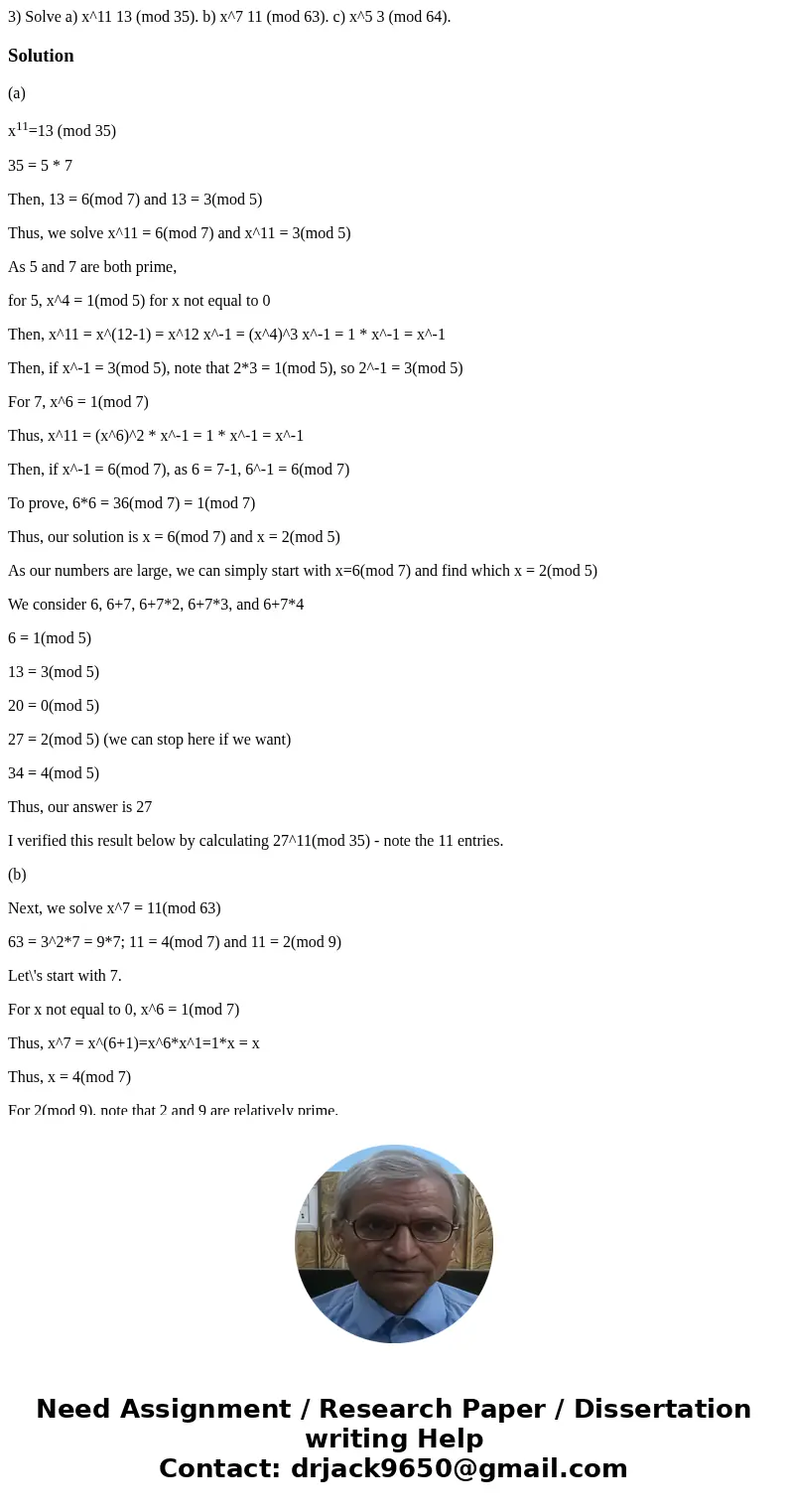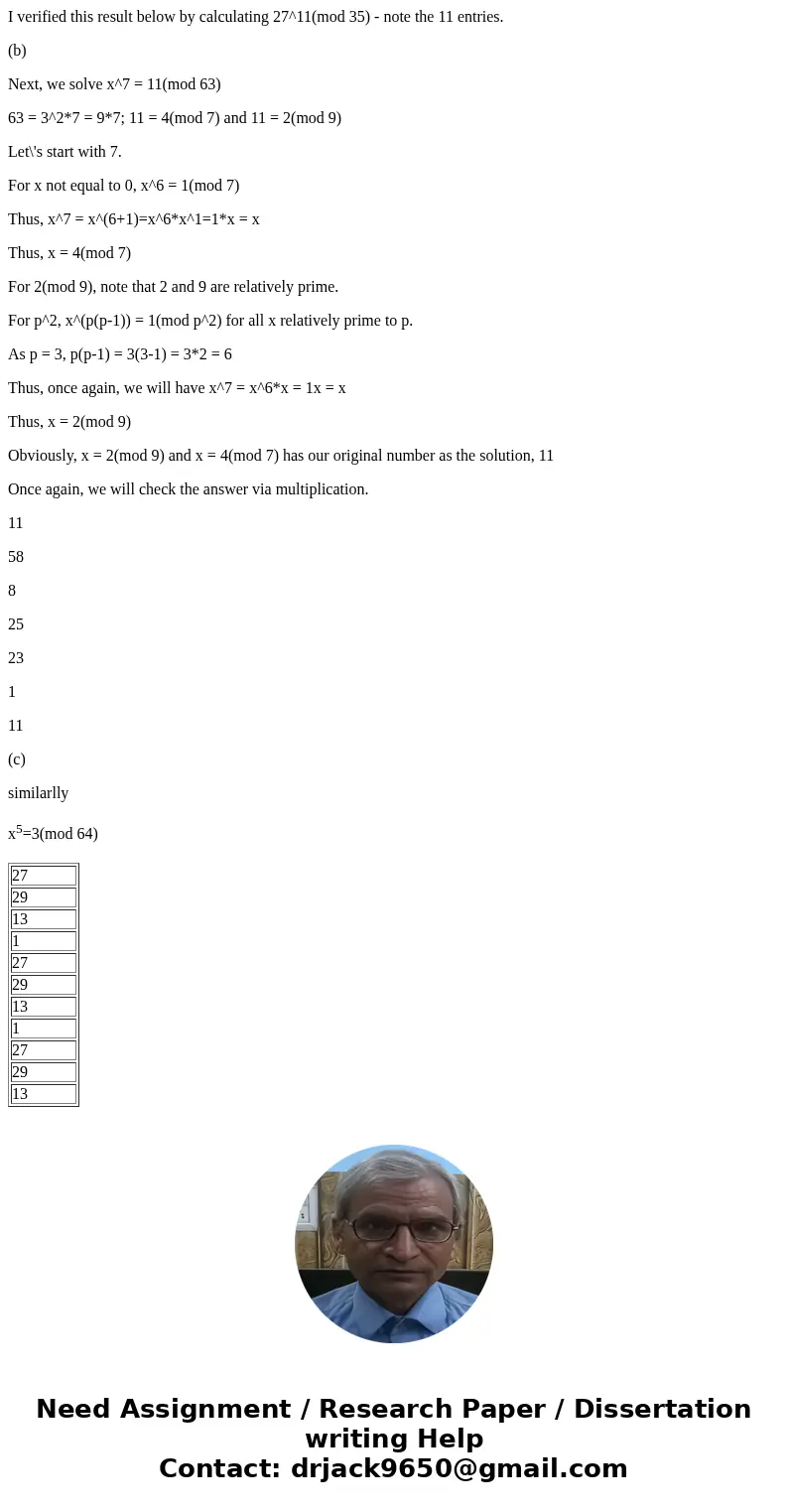3 Solve a x11 13 mod 35 b x7 11 mod 63 c x5 3 mod 64 Solutio
Solution
(a)
x11=13 (mod 35)
35 = 5 * 7
Then, 13 = 6(mod 7) and 13 = 3(mod 5)
Thus, we solve x^11 = 6(mod 7) and x^11 = 3(mod 5)
As 5 and 7 are both prime,
for 5, x^4 = 1(mod 5) for x not equal to 0
Then, x^11 = x^(12-1) = x^12 x^-1 = (x^4)^3 x^-1 = 1 * x^-1 = x^-1
Then, if x^-1 = 3(mod 5), note that 2*3 = 1(mod 5), so 2^-1 = 3(mod 5)
For 7, x^6 = 1(mod 7)
Thus, x^11 = (x^6)^2 * x^-1 = 1 * x^-1 = x^-1
Then, if x^-1 = 6(mod 7), as 6 = 7-1, 6^-1 = 6(mod 7)
To prove, 6*6 = 36(mod 7) = 1(mod 7)
Thus, our solution is x = 6(mod 7) and x = 2(mod 5)
As our numbers are large, we can simply start with x=6(mod 7) and find which x = 2(mod 5)
We consider 6, 6+7, 6+7*2, 6+7*3, and 6+7*4
6 = 1(mod 5)
13 = 3(mod 5)
20 = 0(mod 5)
27 = 2(mod 5) (we can stop here if we want)
34 = 4(mod 5)
Thus, our answer is 27
I verified this result below by calculating 27^11(mod 35) - note the 11 entries.
(b)
Next, we solve x^7 = 11(mod 63)
63 = 3^2*7 = 9*7; 11 = 4(mod 7) and 11 = 2(mod 9)
Let\'s start with 7.
For x not equal to 0, x^6 = 1(mod 7)
Thus, x^7 = x^(6+1)=x^6*x^1=1*x = x
Thus, x = 4(mod 7)
For 2(mod 9), note that 2 and 9 are relatively prime.
For p^2, x^(p(p-1)) = 1(mod p^2) for all x relatively prime to p.
As p = 3, p(p-1) = 3(3-1) = 3*2 = 6
Thus, once again, we will have x^7 = x^6*x = 1x = x
Thus, x = 2(mod 9)
Obviously, x = 2(mod 9) and x = 4(mod 7) has our original number as the solution, 11
Once again, we will check the answer via multiplication.
11
58
8
25
23
1
11
(c)
similarlly
x5=3(mod 64)
| 27 |
| 29 |
| 13 |
| 1 |
| 27 |
| 29 |
| 13 |
| 1 |
| 27 |
| 29 |
| 13 |


 Homework Sourse
Homework Sourse